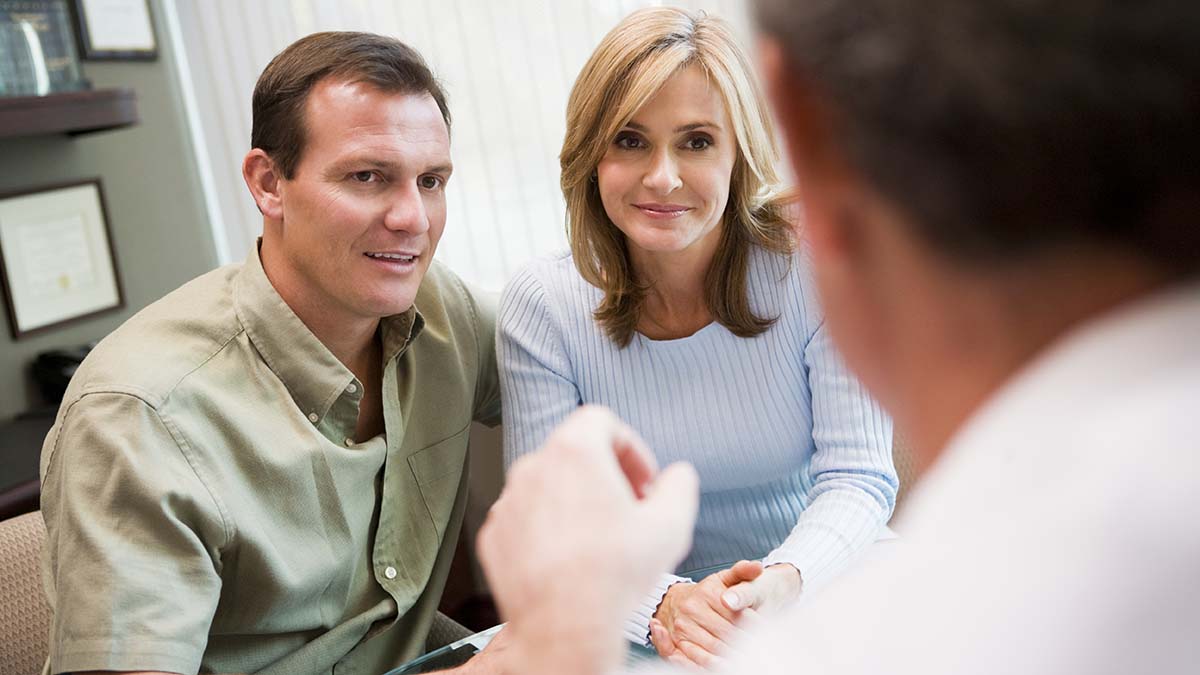[ad_1]
Can a woman over 50 have a child today in Greece? And if so, how safe is this for her and the fetus she will carry? The answers to these questions are given by Mr. Panagiotis I. Krokos, Obstetrician – Gynecologist, Specialist in Assisted Reproduction and Partner of the HYGEIA IVF Embryogenesis Unit
The new living conditions and the modern way of life bring many couples face to face with infertility. Now with the passing and implementation of the new bill for the increasing the age limit from 50 to 54 years for women wishing to give birth through IVFthe dream of having a child can come true for all couples… even after the age of 50!
The average age of having a child in Greece has increased over the last 20 years, according to official data from the Hellenic Statistical Authority (ELSTAT). The change in lifestyle, studies and the need for continuous training, the effort for professional recognition and of course, the financial difficulties and expenses for creating a family and raising a child in the years of the financial crisis, force many women, but also men, to postpone childbearing. So, the number of women wishing to have a child after the age of 40, even 50, is constantly increasing.
The most important factor in infertility is the old age of the woman. Every woman is born with a certain number of eggs in her ovaries. Gradually, therefore, and heading towards menopause, the number of eggs decreases and their quality is significantly affected. Over time, the chance of conception decreases and the chance of miscarriages and chromosomal abnormalities, such as Down syndrome, increases. Menopause occurs on average at age 51 and appears to be genetically determined. Therefore, the fertility of women near the age of 50 is challenged, as ovarian reserves and egg quality decline dramatically.
Menopausal or peri-menopausal women can undergo IVF, either using their own eggs – provided they have planned and carried out fertility preservation by cryopreservation of their eggs at an earlier age, or using eggs from a younger donor . In both cases, the biological age of the eggs is small, their quality is better and thus the probability of success of the method increases.
Following a recommendation by the National Authority for Medically Assisted Reproduction (MAERA), with the passing and implementation of law 4958/22, the age limit for women who wish to undergo any method of Assisted Reproduction increased to 54 years. A prerequisite for IVF in this age group of women is granting of a special permit by the EAIYAafter providing the necessary supporting documents. Once this license is granted, it is valid for 1 year.
Every Reproductive Gynecologist is obliged to ensure the good health of the expectant mother over 50 years of age, in order to avoid complications during pregnancy that could affect her or the fetus. The necessary supporting documents include an opinion from a Gynecologist, Cardiologist or Pathologist and Mastologist which assure that the expectant mother can safely undergo an Assisted Reproduction procedure and become pregnant. In case of a history of any disease, a corresponding opinion from the doctor of the corresponding specialty is required.
Any pregnancy in a woman over 50 is considered a high-risk pregnancy. According to the international literature, pregnant women over 50 are at greater risk for the occurrence of hypertensive disorders of pregnancy and preeclampsia, diabetes mellitus, premature delivery and a high probability of cesarean delivery. For this reason, very close monitoring and special care by the Gynecologist is required throughout the pregnancy in order to minimize complications and ensure the health of the mother and the fetus.
At the HYGEIA IVF Embryogenesis Assisted Reproduction Unit there is extensive experience in the management of IVF cases in women over 50 years of age. Close monitoring of these pregnancies and individualized case management ensure in most cases the best outcome.
It is very encouraging that Greek legislation is now in sync with modern society and its rhythms. Every woman who may have been postponing childbearing for her own reasons has the right to motherhood even after 50 years, as long as her health allows it. Creating a relationship of trust with the Reproductive Gynecologist is a prerequisite so that every woman feels safe and secure throughout the process.
